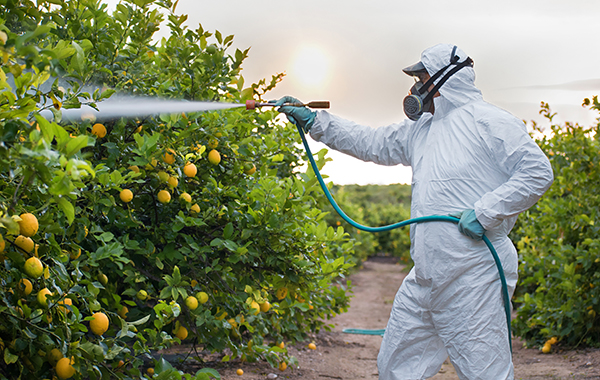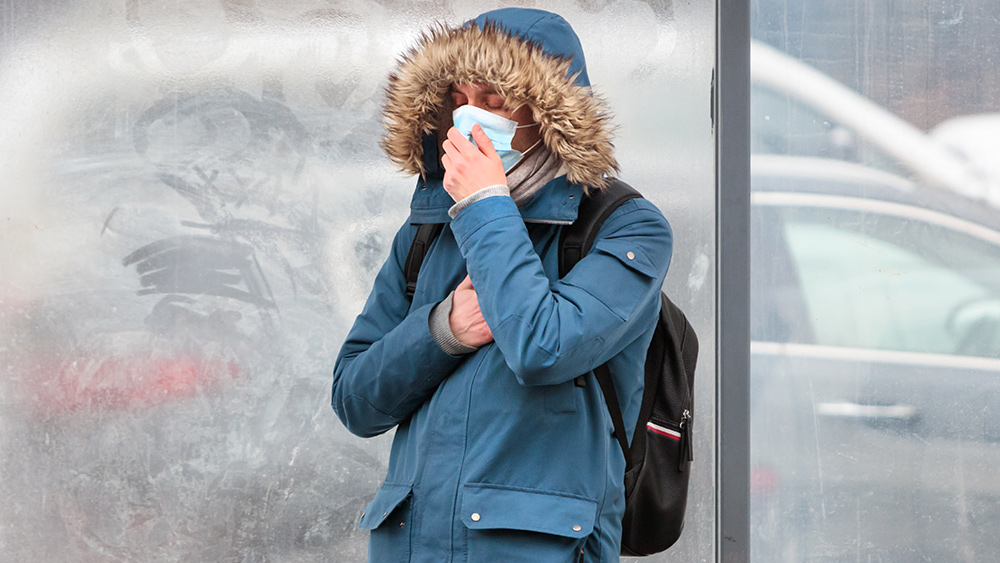Study: High cancer rates in agricultural areas in the U.S. linked to pesticide use
11/18/2024 / By Olivia Cook

A recent nationwide study published in Frontiers in Cancer Control and Society explored the relationship between pesticide use and the incidence of cancer across the United States using a population and community-based approach. Researchers found that counties with higher agricultural activity and pesticide use have increased cancer risk and that the impact of pesticide exposure on cancer incidence in those areas “may rival that of smoking.”
The study’s lead author Dr. Isain Zapata, an associate professor at Rocky Vista University College of Osteopathic Medicine in Colorado, noted: “Our research indicates that for certain cancers, the impact of agricultural pesticides is similar in magnitude to the risks posed by smoking.”
Smoking, according to the Centers for Disease Control and Prevention, is one of the primary causes of lung cancer, with nearly 9 out of 10 lung cancer deaths linked to smoking cigarettes or exposure to secondhand smoke. Lung cancer is said to kill more Americans every year than any other type of cancer.
Pesticide use and higher cancer incidence
The study analyzed data from all 50 states and over 3,000 counties to explore the relationship between pesticide use and cancer rates, comparing these findings to smoking-related cancer risks. Instead of focusing on individual pesticides, the researchers developed profiles of pesticide usage patterns across different regions to account for the combined effects of multiple chemicals.
According to their findings, atrazine, a common herbicide used on crops like corn and sugarcane, is linked to increased rates of colon cancer. Glyphosate, another widely used pesticide, is associated with higher rates of colon, pancreatic and overall cancer incidences. (Related: Glyphosate exposure found to hike non-Hodgkin lymphoma risk by 41%… and this deadly weed killer chemical inundates our food supply.)
The study also found that pesticides like cyprodinil, which is used for controlling plant fungal diseases, are linked to higher cancer rates, including leukemia, despite being less studied compared to pesticides like atrazine.
Zapata explained that people living in areas with heavy agricultural activity are frequently exposed to a mixture of pesticides, which becomes part of their environment. In such environments, cancer risk from pesticide exposure can be comparable to or even exceed the risk from cigarette use, particularly for bladder cancer, leukemia and non-Hodgkin lymphoma.
The researchers emphasized that the combination of multiple pesticides, rather than any single chemical, contributes significantly to cancer risks. They evaluated 69 different pesticides and found that exposure to a mix of these chemicals within a region can have substantial effects on cancer rates.
The researchers acknowledged that while their findings advance understanding of pesticide-related cancer risks, individual cancer outcomes can vary based on numerous factors, including geography. For example, the association between pesticide use and cancer was particularly pronounced in regions like the Midwest, which is known for extensive crop production.
How to avoid pesticides
Here are some things you can do to minimize your exposure to harmful pesticides:
Choose organic
While it is challenging to eliminate all pesticide residues even with USDA-certified organic produce, you can take simple measures to reduce them:
Cold water rinse: Rinse fruits and vegetables under cold, running water to remove up to 80 percent of pesticide residues, bacteria and viruses. For leafy greens, spin-drying helps further reduce chemical residue. (Related: Avoid harmful chemicals like glyphosate in food by ALWAYS choosing ORGANIC.)
Acidic or alkaline soak: For leafy vegetables, tender fruits, root vegetables and soft fruits, soaking them in a pH-altered cold water bath for 5 to 15 minutes can help remove pesticides. Thicker-skinned produce can benefit from being soaked in an alkaline or acidic solution to break down and remove deeper residues.
Grow your own produce
By growing your own fruits and vegetables, you can control what goes into them and avoid pesticide use. Visit your local garden center to learn about native plant varieties that are naturally resistant to common pests in your area.
Use natural pest control methods
Implement companion planting, which involves growing certain plants together to help naturally repel pests or attract beneficial insects. This technique effectively eliminates the need for chemical pesticides.
Regularly weed your garden and yard to deter pests and remove any clutter that might attract unwanted pests. Drain standing water and keep your grass trimmed short to discourage bugs. Consider using natural pest repellents, like neem oil or peppermint oil, to protect your plants from insects.
Consider relocating
If you live near areas with heavy pesticide use, such as large farms, consider relocating to reduce your pesticide exposure.
Visit Pesticides.news for more stories like this.
Watch the following video to learn more about the pesticide and cancer link.
This video is from the Daily Videos channel on Brighteon.com.
More related stories:
Study: Exposure to PESTICIDES contributes to higher risk of CHILDHOOD LEUKEMIA.
Sources include:
Submit a correction >>
Tagged Under:
agriculture, Atrazine, cancer criminals, chemical violence, cyprodinil, Dangerous, Ecology, environment, farming, glyphosate, health science, poison, real investigations, research, toxic chemicals, toxins, weed killer
This article may contain statements that reflect the opinion of the author
RECENT NEWS & ARTICLES
COPYRIGHT © 2017 REAL INVESTIGATIONS NEWS




















